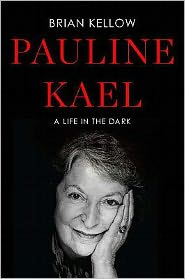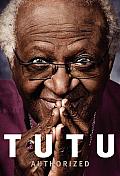In looking for justices, Nixon focused on how their appointment and performance would help his own electoral prospects. Thus, he cared about appointing a conservative white southerner, so as to appease the south; a Catholic, so as to make inroads among socially conservative working-class Americans of Italian, Irish, and Polish descent who would later become Reagan Democrats; and a woman. And after a few misfires, Nixon realized that he could not appoint a complete idiot. Nixon also sought a justice who would support his anti-busing and pro-law-and-order positions—and yet the overall picture, in McMahon’s telling, is one in which Nixon cared about ideological conformity but only with respect to these two issues (as opposed to other hot-button issues like pornography, speech, and religion) and not very strongly.Also from TNR:
- A review of Illustrating Empire: A Visual History of British Imperialism (Bodleian Library, University of Oxford), by Ashley Jackson and David Tomkins. It is not only a "lovely and informative book, . . . full of images that navigate nearly every aspect of British imperialism," but also "an implicit rebuke to the thesis . . . that a huge percentage of British citizens had no idea about the scope of the British Empire until nearly the end of the nineteenth century."
A review of Corey Robin's The Reactionary Mind (mentioned previously here and here). Reviewer Alan Wolfe is "tempted by [Robin's] analysis" and convinced that his "arguments deserve widespread attention," but doubts that this book will become "part of our national conversation."
- A review of the latest in what Jack Rackove calls "Founders Chic," James Brookhiser's James Madison (see below).
Enjoying unprecedented access to all Kennan’s papers, having interviewed Kennan and members of his family, Gaddis has taken the measure of his man. Yet even while insisting resolutely on his subject’s claim to greatness, Gaddis succeeds chiefly in revealing Kennan’s frailties and foibles. The man in full turns out to have been all too human.Also reviewed: the new William Carlos Williams biography (here).
From this week's New York Times:

- Kevin Boyle offers his take on Tony Horwitz's Midnight Rising: John Brown and the Raid that Sparked the Civil War (Henry Holt) (mentioned in last week's round-up, here). "[I]t’s impossible to read this fine book," Boyle notes, "without thinking about the modern-day Browns, soldiers of a vengeful God, seeking righteousness in a fierce burst of violence, justice in the shedding of blood."
- LHB readers are likely well acquainted with one James Madison. For those who aren't, consider the new biography by Richard Brookhiser. Reviewer Richard Beeman has some kind words for it. (For a balanced but less charitable view, see the New Republic review, above, by Jack Rackove.)
- The NYT also offers a long review of two books on Pauline Kael, an American movie critic who "transformed the sensibility and standards of mainstream pop culture criticism in America — mostly for the better, despite her bullying personality (in print and in life), her sloppy professional ethics and her at times careerist escapades in self-dramatizing contrarianism." Follow the link for more on Pauline Kael: A Life in the Dark (Viking), by Brian Kellow, and The Age of Movies: Selected Writings of Pauline Kael (Library of America), edited by Sanford Schwartz. Book excerpts are here and here, respectively.
In the latest installment of the London Review of Books:
- Pankaj Mishra reviews Civilisation: The West and the Rest (Allen Lane), by Niall Ferguson (open access, here) (also reviewed this week in the Wall Street Journal, here).
- Bernard Porter reviews The Opium War: Drugs, Dreams and the Making of China (Picador), by Julia Lovell (subscribers only, here).

